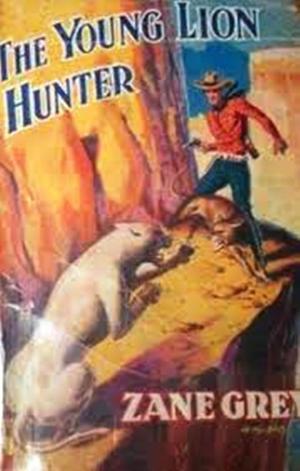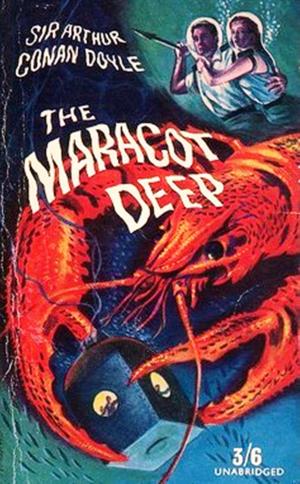| Author: | J. S. Fletcher | ISBN: | 1230000192806 |
| Publisher: | WDS Publishing | Publication: | October 28, 2013 |
| Imprint: | Language: | English |
| Author: | J. S. Fletcher |
| ISBN: | 1230000192806 |
| Publisher: | WDS Publishing |
| Publication: | October 28, 2013 |
| Imprint: | |
| Language: | English |
When Mordecai Chiddock came to join the lighthouse staff on Shivering Sand, Jezreel Cornish was taking his allowance of sleep, and Chiddock,
being new to the place, did not know who it was he would meet when Cornish woke up. Otherwise, the boat which had brought him and a month's provisions over from the mainland would never have gone back without him.
Until Chiddock came we had never been more than two at the Shivering Sand. That was a bad arrangement, of course, and it was I who got the worst of it. Once Reuben Cleary fell sick, and had to take to his bed. That was just after the monthly boat had been, and until it came again I had to work night and day and nurse him into the bargain. Then there was Pharaoh Nanjulian; he was a melancholy sort from his youth, and the loneliness and monotony affected his brain. His wits gave out at last, and he used to spend the whole day in singing psalms and hymns, and preaching to the sea-birds. We had great storms that autumn, and the monthly boat came a fortnight late, and found me about done for, what with living day and night with a madman, and doing work for two. And it was because of what I said—not mincing matters—that it was decided to send a third man, so that in such cases as those of Cleary and Nanjulian the other man should not be utterly and badly alone.
Chiddock was the man who was sent. Of course, neither Cornish nor myself knew who would be sent; all we knew was that the September boat would bring a third keeper off with it.
It was a fine, bright morning when he came, and I watched him narrowly as he came on to the platform at the foot of the lighthouse, which you could only make at certain times. He was a thick-set, swarthy man of middle age; he had curling black hair and beard, and his eyes were shiftier than I cared about. However, he bade me good morning civilly enough, and when he had got his own things up from the boat, gave me a ready hand with the month's stores. It was not till the boat was off again that he seemed disposed for conversation.
"My name's Chiddock," he says. "Mordecai Chiddock."
"Mine's John Graburn," I answered him.
He offered me a plug of tobacco, and took a sort of comprehensive glance all around him.
"This," he says, "is a lonelier place than most of 'em."
When Mordecai Chiddock came to join the lighthouse staff on Shivering Sand, Jezreel Cornish was taking his allowance of sleep, and Chiddock,
being new to the place, did not know who it was he would meet when Cornish woke up. Otherwise, the boat which had brought him and a month's provisions over from the mainland would never have gone back without him.
Until Chiddock came we had never been more than two at the Shivering Sand. That was a bad arrangement, of course, and it was I who got the worst of it. Once Reuben Cleary fell sick, and had to take to his bed. That was just after the monthly boat had been, and until it came again I had to work night and day and nurse him into the bargain. Then there was Pharaoh Nanjulian; he was a melancholy sort from his youth, and the loneliness and monotony affected his brain. His wits gave out at last, and he used to spend the whole day in singing psalms and hymns, and preaching to the sea-birds. We had great storms that autumn, and the monthly boat came a fortnight late, and found me about done for, what with living day and night with a madman, and doing work for two. And it was because of what I said—not mincing matters—that it was decided to send a third man, so that in such cases as those of Cleary and Nanjulian the other man should not be utterly and badly alone.
Chiddock was the man who was sent. Of course, neither Cornish nor myself knew who would be sent; all we knew was that the September boat would bring a third keeper off with it.
It was a fine, bright morning when he came, and I watched him narrowly as he came on to the platform at the foot of the lighthouse, which you could only make at certain times. He was a thick-set, swarthy man of middle age; he had curling black hair and beard, and his eyes were shiftier than I cared about. However, he bade me good morning civilly enough, and when he had got his own things up from the boat, gave me a ready hand with the month's stores. It was not till the boat was off again that he seemed disposed for conversation.
"My name's Chiddock," he says. "Mordecai Chiddock."
"Mine's John Graburn," I answered him.
He offered me a plug of tobacco, and took a sort of comprehensive glance all around him.
"This," he says, "is a lonelier place than most of 'em."















